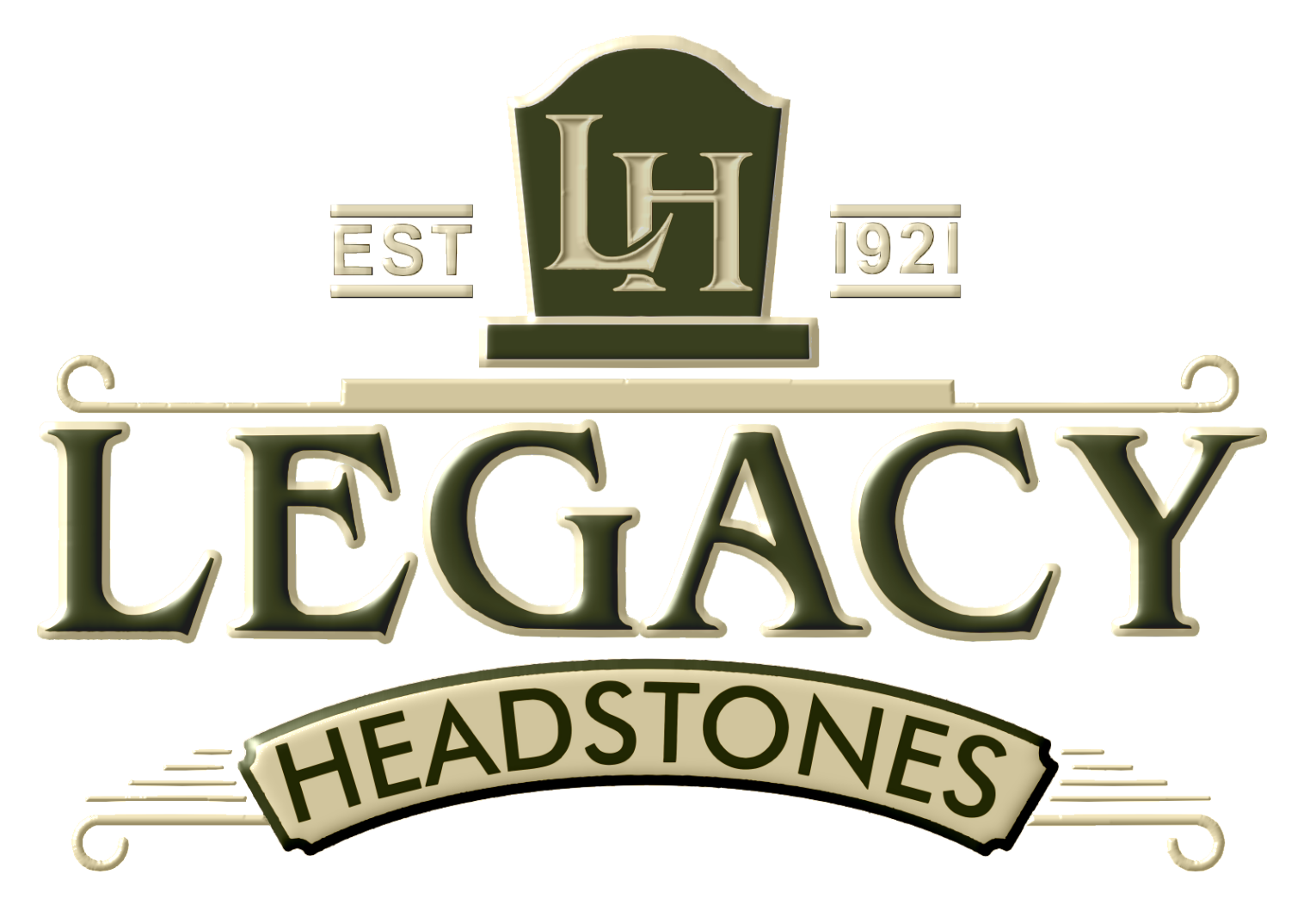The original purpose of headstones, after their invention in the distant past, was simply to mark the grave of a deceased person. This usage has become more complex as headstones are now used as an honorary memorial for the deceased and a marked place for loved ones to grieve. A headstone serves as a physically tangible reminder of a loved one even after they have passed. They provide a place for friends and family to reflect on the life of their loved one, and their customizability allows passersby in the cemetery to gain a brief insight into the life of the person that lies below. Headstones endure harsh conditions as permanent parts of the landscape despite time, weather, and earthly elements. The permanence of headstone memorials provides a comforting counterbalance to the impermanence of life and there are numerous reasons why they matter.
- Identification: Going back to the underpinnings of headstones, identification is one of their primary functions. Typically, headstones include information about the deceased, including their name, birth date, death date, and even more personal details like where the person is from, the names of family members, and the person’s occupation. This type of identification sets the person apart from other people in the cemetery and provides crucial details for family and friends to be able to locate their loved one. Especially in large cemeteries, it can be easy to forget the exact resting spot. When future generations visit the grave, they likely rely on directions via word of mouth. It is for these reasons that the inclusion of identifying information is crucial on all headstones. Decades or even centuries down the road, ancestors may use headstones to trace lineage. The words engraved on each stone are essential in identifying and memorializing the deceased for years to come.
- Representation: Among names and other identifying information, one can often find symbols and motifs engraved on headstones. In many religions, an earthly departure is a significant event in a person’s life. In order to ensure that the spirit is prepared to cross over to the afterlife, many loved ones will affirm the deceased’s religious beliefs on their headstone. While some may opt for quotes from their sacred text, others choose symbols to represent different aspects of faith. Popular Christian symbols include a cross, angels, doves, lambs, and other biblical figures. Other religions use symbols from their faith, like fruit, animals, and astrological images. Heritage is another aspect of identity that is also frequently displayed on headstones. Images of flags or clovers represent the culture within which the deceased lived. Symbols on headstones offer a glimpse into the life, personality, and values of the deceased. Whether friends and family are visiting the stone to reflect or strangers are taking a stroll through the cemetery, everyone gets a chance to know the deceased beyond surface-level identifiers.
- History: Beyond comforting loved ones, headstones can be used as historical artifacts that offer insight into the past. As technology improves, headstones are created out of more durable materials that will last longer than ever before. Historians use centuries-old headstones to draw a number of conclusions. Speculations about certain time periods and causes of death have helped uncover information in ways that other artifacts cannot. To researchers and historians, headstones are historic documents that tell meaningful stories. Not only do they get to learn about people who lived hundreds of years before them, but they also collect the information to use for the common societal good.
- Memorial: A headstone is often the last earthly reminder that remains after a person passes. Over time, their worldly possessions will disperse and disappear, yet their headstone will remain a lasting reminder of their important presence on earth. One of the significant purposes of headstones is to provide a place for loved ones to grieve, communicate, and celebrate with their family member or friend. The information on headstones humanizes the deceased and serves as a reminder of their life rather than a statement of their death. The presence of a headstone is a proclamation that there is a person who lies beneath. The headstone honors the person’s name and the importance of their existence on earth.
There are countless reasons why headstones matter. Headstones communicate that even though their physical body is gone, their spirit remains accessible. Customization and modern technology allow families to create a highly personalized headstone that encapsulates the spirit of their loved one so it can live on for centuries.

